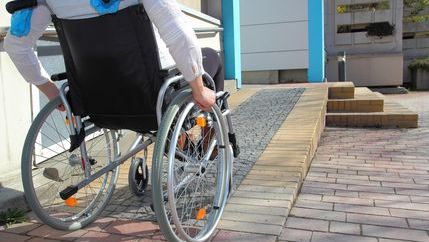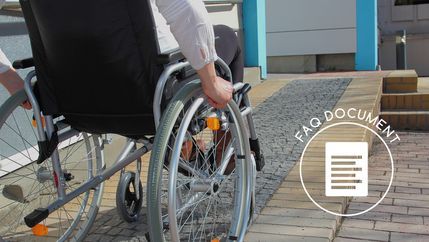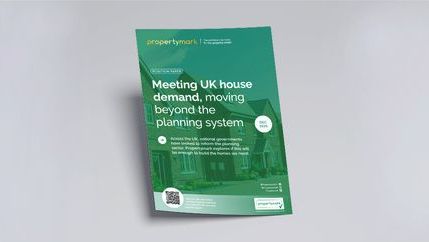
Timothy Douglas, Head of Policy and Campaigns at Propertymark urged the UK Government to make a long-term commitment to ensuring all people with disabilities have reliable access to appropriate homes with security of tenure, in the right location for them to access their support networks and required specialist services.
Evidence from our member agents showed that 64% of sales agents and 62% of letting agents said it was difficult or very difficult for people with disabilities to secure accessible or adapted homes.
Why is there a shortfall of homes?
During the committee session, on Monday 5 February, MPs asked why there is such a significant shortfall of accessible properties both to buy and to rent. Douglas referenced the overall, long-term lack of sufficient housebuilding, which has led to a shortage of all kinds of homes, not just those adapted for disabled people.
Our members have told us that a variety of property types are required to meet the needs of people with different disabilities. Whilst some existing properties can be adapted, in areas such as Bath which have a lot of older or listed buildings this can be much more difficult and expensive to do.
View a recording of the committee session →
Landlords are not supported to adapt homes
A member of the LUHCC questioned why it might be that although 19% of disabled people live in private rented housing, only 8% of Disabled Facilities Grant funding is spent in the sector.
Over 65% of Propertymark member agents were unaware of the Disabled Facilities Grant and a further 15% knew very little about it, and therefore they were not equipped to signpost landlords and tenants who may need to access it.
Where agents and landlords are aware of the funding, the process is long and inflexible. Landlords applying to adapt their properties must have a resident disabled tenant, and so cannot proactively adapt their properties and make them available for future tenants. In one case, the application process took so long that the tenant died before adaptations could be made to his home.
We have previously called for better relationships between local authorities and private landlords, and a key opportunity would be for local authorities to keep a database of adapted properties so that they could signpost tenants to suitable private rented homes.
Funding has not kept pace with rising costs
The amount of money awarded by disabled facilities grant funding is often not enough to cover the cost of the changes that are needed, especially in older properties where structural work may be necessary.
The overall funding pot is also not adequate to meet demand, so in some cases, local authorities are filling the gaps with money that is allocated for adult social care.
Aspiring homeowners disadvantaged
According to the English Housing Survey, in 2019 42.2% of disabled people owned their own home compared with 53.2% of non-disabled people.
To boost homeownership amongst this group we recommend increasing the provision of specialist help to buy and shared equity schemes, and widening the eligibility criteria so more people can take advantage of them.
The schemes that exist at present, such as Home Ownership for People with Long-term Disabilities (HOLD) are means-tested based on household income, restricted to first-time buyers and exclude disabled people who are in work.
National Planning Policy Framework (NPPF)
Propertymark believes the NPPF should place greater emphasis on the needs of disabled people. Not only should individual developments include homes designed to accommodate people with disabilities, but accessibility should be built in at the strategic level.
Consent should only be given to residential developments where there is clear evidence of sufficient provision for accessibility and inclusion.
Raising accessibility standards for new homes
We believe that to meet disabled people’s housing needs, the ‘accessible and adaptable’ standard should be adopted as the minimum, except where this is impractical and unachievable. In addition, there should be a mandatory percentage of homes that meet the fully accessible standard, and this should be reflected in Local Development Plans.
Local planning decisions
The local planning authority determines if higher standards of accessibility are required for each development as a condition of planning permission. However, they often do not have sufficient data to properly understand the current and future need for accessible housing.
This data must be improved, and the UK Government should back local plans by incentivising developers to build more homes to higher accessibility specifications.
This could be done through grant funding, or by allowing local authorities to transfer a proportion of their Section 108 obligations from affordable to accessible housing where there is a local need.








